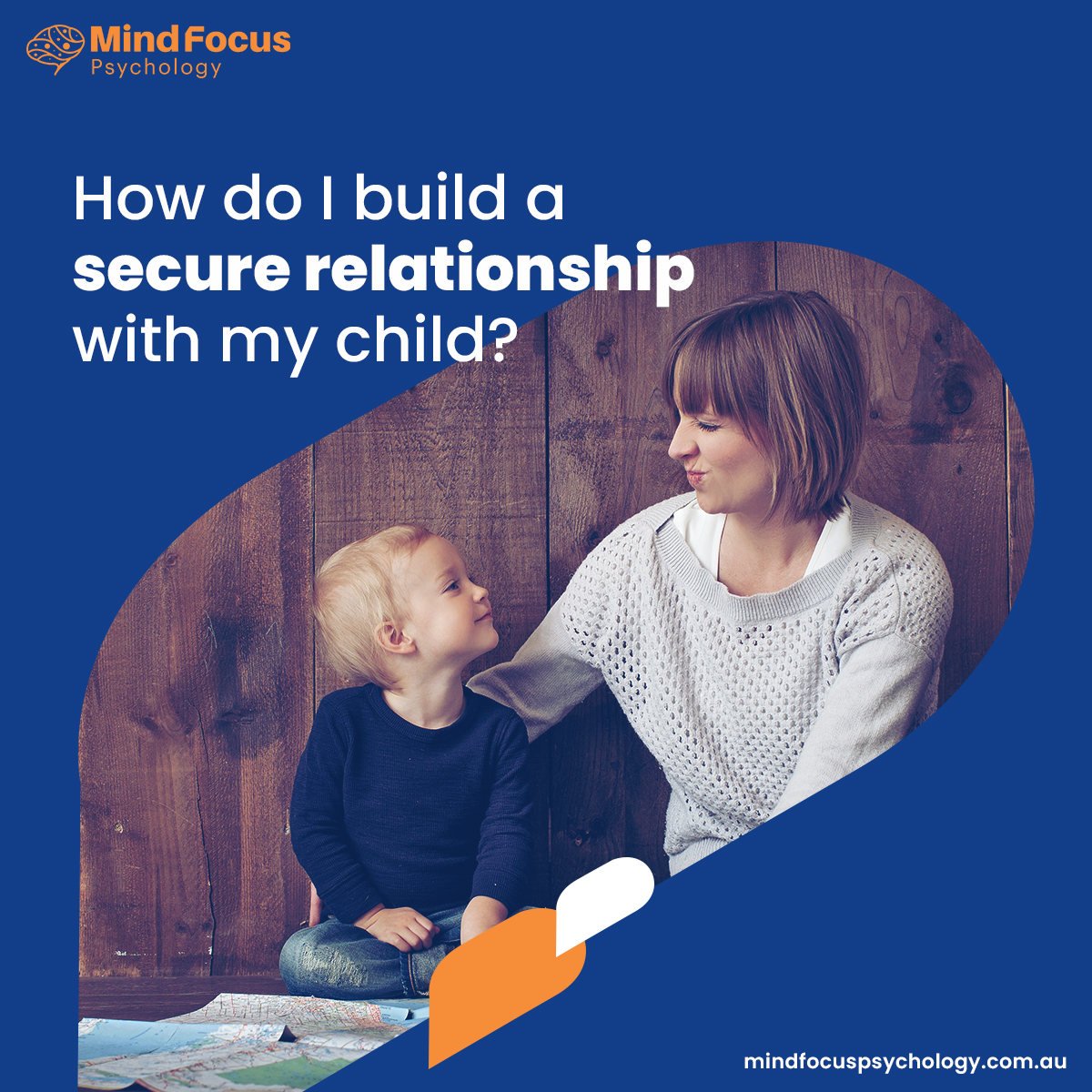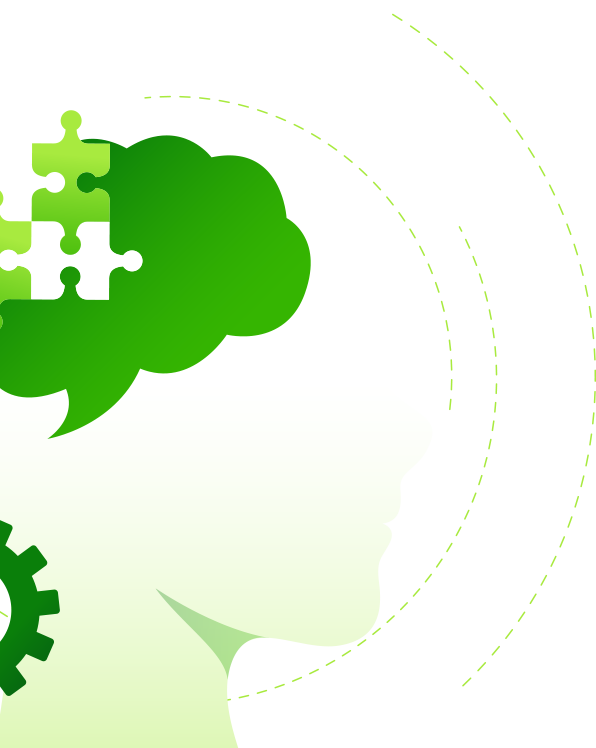
December 29, 2023
- Rose Morkos
- Leave a Commenton Building Bonds: 11 Expert Tips for a Thriving Parent-Child Relationship
Building Bonds: 11 Expert Tips for a Thriving Parent-Child Relationship
Over and over we have been told what secure, healthy attachments are, how they benefit parent-child relationship and children’s future outcomes, but have you ever stopped to think exactly how you can make secure attachment a reality with your kids? Cultivating secure relationships with children is something which, for most of us, was not at the forefront when we were kids so it’s quite understandable that, while wanting to create this with future generations – due to our own experiences and a lack of secure relationships with our own parents – we may not know exactly how we can make this happen. So, if you’re looking for a way, you’ve come to the right place…
Our tips to cultivating healthy, secure relationships with your kids:
Tip #1
When talking to your child, do it without distraction. Having your full attention when talking to children indicates to them that they are important, their presence and words are meaningful to you and that you are present in the moment with them. Simultaneously, this will have a carry over effect of solidifying your kids’ self-esteem and belief in themselves that their expression is important. If you are not able to talk at a certain moment in time when your kids are reaching out to you, make sure it’s clear to them that you are not able to give them your full attention at that point in time, despite you wanting to, and set up a time where you can shift your attention onto them. If you need to interrupt them at any point, turn to them again sometime and ask them to continue.
Tip #2
Talk openly and honestly with your children about their emotions. This can be done through reassuring your children that having emotions is healthy and you are there to support them through anything they are struggling with. An example of this is validating their feelings, “it’s completely understandable that this situation made you feel angry. Let’s talk about it. Tell me more.” Now, this tip has stood the test of time. Talking to your kids openly and honestly, especially about their emotions, will ultimately lead to them being more attuned to their emotions and the emotions of others. This promotes emotional self-regulation and empathy, both of which are going to contribute tremendously to healthy relationships as well as their own healthy perceptions of relationships. The benefits of this tip will carry on in many areas of your child’s life, through childhood and into adulthood.
Tip #3
Recognise times where child needs your support versus the times when they need space. Yep, that’s right, sometimes kids, just like adults need some space too. Some signs that your child might need some space is when their response declines or they directly say they would like to be alone. Recognising and respecting this allows your kids to self-regulate and identify times when they may need some help versus other times when they might be able to deal with the situation on their own. This promotes self-sufficiency which ultimately leads to independence with the knowledge that being dependent on others sometimes is also a safe and available option – but not the only way.
Tip #4
Trust your kids and show them that you do. Most parents have an urge to protect their kids from everything and to take away their pain, but the truth is that pain in life leads to experience and experience leads to a more accurate assessment of self as well as a heightened, yet realistic trust in themselves. An example of showing them your trust would be to say, “I trust that you can do this without my help. If you need me, I’m here.”
Tip #5
Connect with your kids by doing something you both enjoy. Kids are generally pretty intuitive and will understand when you are not enjoying your time with them, so genuinely connecting with your kids takes some work. Sometimes we find that the activities they’re interested in don’t interest us or vice versa, but the truth is that there will always be an activity you both enjoy and it is worth discovering what that is. This ultimately leads to deep connection with your children and allows them to be able to develop deeper and more meaningful relationships in the future.
Tip #6
Allow your children to be who they are without categorising them. Categorising children puts them in boxes and sets them up to behave based on their label – a child labelled, “naughty,” after acting up once may begin to act up more in school, a child labelled, “naturally intelligent,” may rely purely on this and not put in work to improve themselves; labelling a child, “stubborn,” may lead a child to persistently be resistant to instruction or cause them to unknowingly give up their rights in order to prove they are not stubborn. Labelling children sets them up on a specific pathway, whereas avoiding labels allows your child to change, improve and develop continuously without the burden of categories.
Tip #7
Avoid comparing your children to other children; including siblings. This one ties into tip #6 on allowing your children to be who they are and avoiding labelling. Comparisons ultimately lead to labelling a particular child as better or worse in one way or another. Whether you are positively or negatively comparing – “you are better than that kid” or “why can’t you be more like him/her?” – you set up the motions in your child’s head to compare themselves to others. This can ultimately lead to superiority or inferiority complexes which opens up a whole other world consisting of lack of trust in oneself, being overly and unrealistically confident (narcissist alert!), hypersensitivity towards criticism, or negative view of competition – among a myriad of other negative effects.
Tip #8
Avoid correcting your children during times of play. Using their imagination in a free and safe place without judgement allows them to develop a sense of play and allows your child to develop their creativity. This translates into in a greater confidence in ability to problem solve and ultimately leads to being able to effectively do so.
Tip #9
Light up when your child enters the room. Actively showing your child that you enjoy their company through gestures such as lighting up when they enter a room with eye contact and happy facial expressions lets them know that they are worthy of someone enjoying them. It lets them know that their presence is seen and appreciated, all of which has tremendous effects on their self-esteem and confidence, while simultaneously creating an atmosphere of kindness, joy and safety within your presence.
Tip #10
Engage in self-reflection. Apologise when needed and work to improve. Being a parent doesn’t mean instant perfection, in fact, attaining perfection is just about impossible given a myriad of ever-changing factors; situations, moods, different perspectives, our own attachment styles. However, what will always remain a constant is that we have the ability to reflect on the past and maintain or improve upon past actions. Perhaps we have a moment of weakness where we give into raising our voices instead of calmly talking it through or we may have a moment where we deal with a situation almost perfectly and we become aware that this strategy works. Whatever the case, reflecting on behaviour; negative and positive, allows us to develop awareness of what works and what doesn’t work. Further, self-reflection allows you to realise those mistakes and give us an opportunity to apologise to children and the good news is, apologizing to your children can similarly open the door for them to develop their own self-reflection skills! Win-win!
Tip #11
Seek therapy yourself to work through traumas and triggers. While this may not seem like it has a direct effect, working through your own past traumas and present triggers may assist you in managing natural protective instincts that result from those triggers and let’s face it, sometimes behaviours kids exhibit can and will trigger us. Therapy, therefore, allows us to heal from past traumas and learn to cope with triggers, inevitably creating space for you to develop the skills to parent effectively. Being more attuned with yourself will result in being more attuned to your kids and their needs also.
All in all, how you steer yourself and your relationship with your children works to determine the kind of relationship you develop, whether it be one of love and trust, or fear and lack of trust. Furthermore, the effects of relationships with your children go beyond your own relationship with them and translate into secure and healthy relationships with others, higher self-esteem and greater, well-rounded experiences and overall well-being; effects which may very well carry on to the rest of their lives and onto future generations.
We wish you happy and healthy parent-child relationships!



